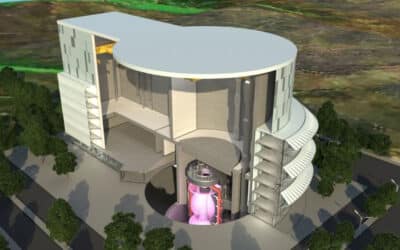The UK Space Agency has awarded Rolls-Royce £2.9m to build a nuclear reactor for a future moon base.
The manufacturer will be working with scientists and academics from Sheffield’s Advanced Manufacturing Research Centre (AMRC), as well as University of Oxford, University of Bangor, University of Brighton and Nuclear AMRC.
The micro-reactor programme will develop technology to provide the power needed for humans to live and work on the moon.
“Space exploration is the ultimate laboratory for so many of the transformational technologies we need on Earth: from materials to robotics, nutrition, cleantech and much more,” said George Freeman, Minister of State at the Department of Science, Innovation and Technology.
“As we prepare to see humans return to the Moon for the first time in more than 50 years, we are backing exciting research like this lunar modular reactor with Rolls-Royce to pioneer new power sources for a lunar base.
“Partnerships like this, between British industry, the UK Space Agency and government are helping to create jobs across our £16 billion SpaceTech sector and help ensure the UK continues to be a major force in frontier science.”
Rolls-Royce said they planned to have a reactor ready to send to the moon by 2029.
“The new tranche of funding from the UK Space Agency means so much for the Rolls-Royce Micro-Reactor Programme,” added Abi Clayton, Director of Future Programmes for Rolls-Royce.
“We’re proud to work collaboratively with the UK Space Agency and the many UK academic institutions to showcase the best of UK innovation and knowledge in space.
“This funding will bring us further down the road in making the Micro-Reactor a reality, with the technology bringing immense benefits for both space and Earth. The technology will deliver the capability to support commercial and defence use cases alongside providing a solution to decarbonise industry and provide clean, safe and reliable energy.”
The UK Space Agency believes that the research could lay the groundwork for humans to live permanently on the moon.













